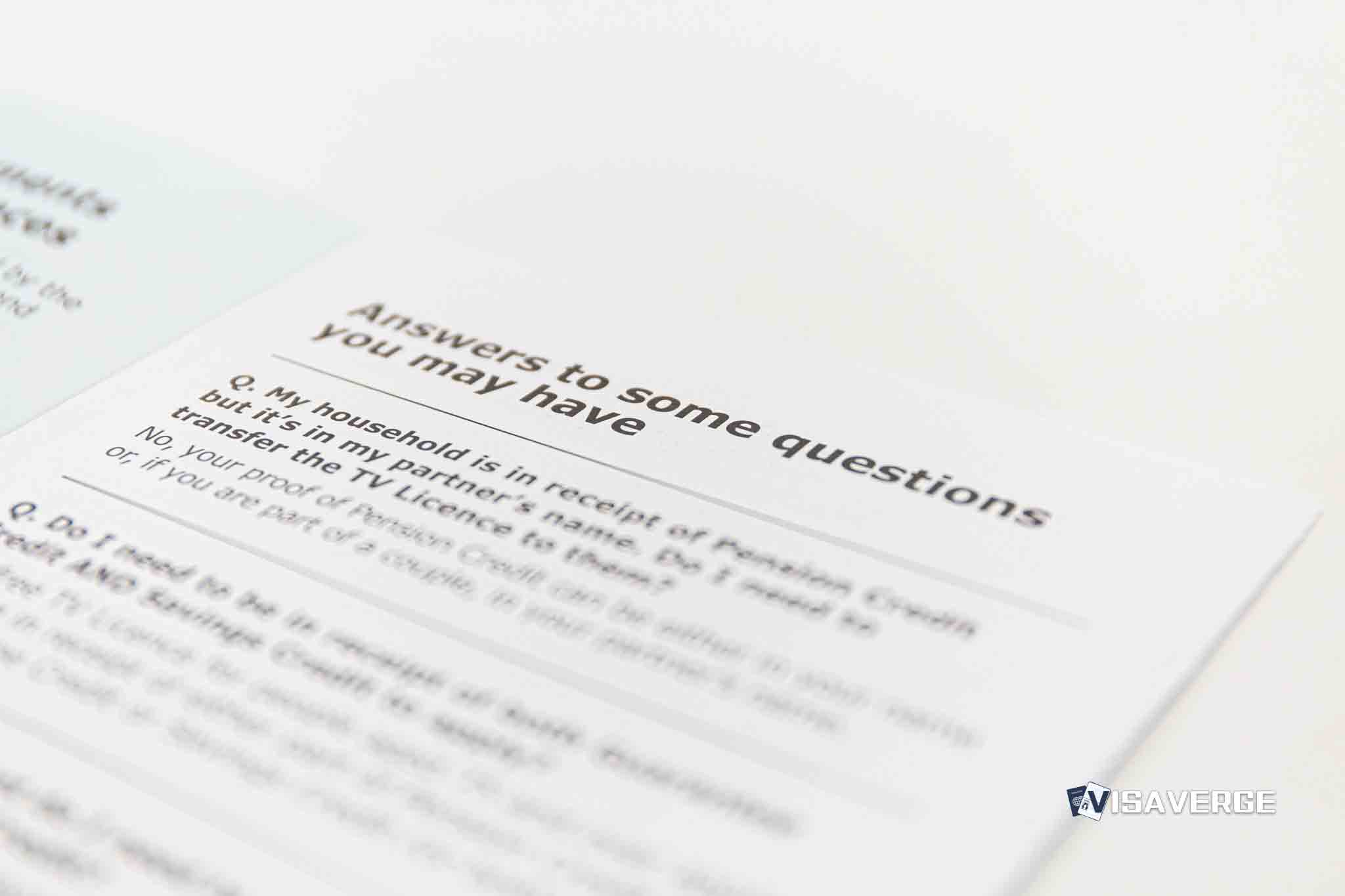The Internal Revenue Service is reminding foreign nationals in the United States that they may need to file Form 1040-NR if they are a nonresident alien with U.S. source income, have been engaged in a trade or business in the country, or owe certain special taxes.
The agency’s rules make clear that filing can be required even when no U.S. tax appears due at first glance — including when income is exempt by tax treaty or when a taxpayer had no gross income but conducted business activities in the United States. According to analysis by VisaVerge.com, the broad reach of these triggers continues to catch students, short-term workers, and business visitors by surprise each year, especially those who assume that withholding or treaty benefits remove the need to file.

Key form and where to get it
At the center of the filing regime is the U.S. Nonresident Alien Income Tax Return, officially titled Form 1040-NR. The IRS says a nonresident alien must file a return “in general” if they receive U.S. source income and owe additional taxes, or if they conduct a business in the country.
A nonresident alien who is married to a U.S. citizen or resident at year-end can choose to be treated as a U.S. resident for tax purposes; that decision changes filing status and should be considered carefully.
Primary forms and schedules:
– Form 1040-NR
– Schedule OI (Form 1040-NR)
– Schedule NEC (Form 1040-NR)
Filing triggers clarified
IRS instructions list multiple concrete situations that require filing. The broadest rule:
- A nonresident alien engaged in a trade or business in the United States during the year must file.
This applies even if there is no income from that business, no U.S. source income at all, or the income is exempt under a treaty or the Internal Revenue Code.
If there was no gross income, the individual does not complete the full form; they complete only Schedule OI and attach a list of the types and amounts of exclusions claimed.
What the IRS means by “gross income”
The IRS defines gross income as all income received in money, goods, property, and services that is not exempt from tax. For nonresidents, this generally includes income only from U.S. sources and includes gains (but not losses) from asset transactions.
For business income, think of the gross amount shown on:
– Schedule C (Form 1040) — Schedule C (Form 1040)
– Schedule F (Form 1040) — Schedule F (Form 1040)
Do not reduce gross income by losses or expenses when deciding if a filing is required.
Other common triggers
- Receiving U.S. source income reportable on Schedule NEC with insufficient tax withheld at source — you must file to settle remaining tax.
- Having specific items or circumstances listed below (see next section).
Specific items that create a filing requirement
The IRS lists several specific triggers. You must file if any of these apply:
- Received HSA, Archer MSA, or Medicare Advantage MSA distributions.
- Had net earnings from self-employment of at least $400 and are a resident of a country with which the U.S. has an international social security agreement.
- Advance payments of the premium tax credit were made for you, your spouse, or a dependent who enrolled through the Marketplace.
- You represent a deceased person who would have had to file Form 1040-NR.
- You represent an estate or trust that must file Form 1040-NR.
- You held a qualified investment in a qualified opportunity fund (QOF) at any time during the year.
- You are a dual-resident taxpayer who wishes to be treated as a nonresident of the United States when figuring income tax liability.
Some nonresident aliens must file because they owe special taxes, including:
– Alternative minimum tax
– Additional tax on a qualified plan (including IRAs and other tax-favored accounts)
– Household employment taxes
– Social Security and Medicare tax on tips not reported to an employer or on wages where the employer did not withhold
– Various write-in taxes such as uncollected Social Security and Medicare or RRTA tax on tips and on group-term life insurance
– Additional taxes on health savings accounts
– Recapture taxes
If a special tax is the only tax owed, the IRS sometimes allows standalone filing (examples):
– Form 5329 by itself for additional tax on a qualified plan — Form 5329
– Schedule H (Form 1040) by itself for household employment taxes — Schedule H (Form 1040)
Limited exemptions reaffirmed
The IRS outlines narrow exceptions where Form 1040-NR is not required:
- No income subject to tax under section 871 — meaning nothing listed on page 1 of Form 1040-NR or on Schedule NEC.
- Nonresident alien students, teachers, or trainees temporarily in the U.S. under F, J, M, or Q visas and who have no income subject to section 871.
- Students or business apprentices eligible for benefits of Article 21(2) of the United States–India Income Tax Treaty who are single or a qualifying surviving spouse and had gross income for 2023 within the annually adjusted threshold.
- A partner in a U.S. partnership not engaged in a U.S. trade or business during the year when their Schedule K-1 (Form 1065) shows only U.S. source income reportable on Schedule NEC — see Schedule K-1 (Form 1065).
Important: The prior exception for those whose only U.S. trade or business was the performance of personal services is not available for tax years 2018 through 2025 due to the Tax Cuts and Jobs Act (personal exemption is zero). Many short-term service providers who previously relied on that exception must now file.
Practical implications for workers and students
These rules sweep in many individuals who may not expect to file:
- A visiting engineer who meets U.S. clients for a few days and invoices from abroad may still be considered engaged in a U.S. trade or business — triggering a filing requirement even if revenue is treaty-exempt.
- A research scholar on a J visa with a small U.S. stipend may owe no tax after treaty claims but still needs to file if withholding fell short or other triggers apply.
- A student from India on an F visa could qualify for the treaty-based student exception, but only if single (or a qualifying surviving spouse) and gross income stays within the set threshold; otherwise Form 1040-NR is required.
Other practical points:
– Even if business shows a loss, the existence of business activity can trigger a filing; if there is no gross income, filing may be limited to Schedule OI plus an attachment detailing exclusions.
– Advance premium tax credit payments, handling a deceased person’s taxes, representing estates or trusts, or holding a QOF investment can all create filing duties.
– Unreported tips or wages where the employer did not withhold Social Security and Medicare tax can require filing to settle those amounts.
– Nonresidents in countries with international social security agreements must file if self-employment net earnings are $400 or more.
For partnership investors, the filing obligation depends on whether the partnership itself was engaged in a U.S. trade or business. If the partnership was not and the partner’s K-1 shows only amounts for Schedule NEC, the exception may apply.
Tax treaty protection can exempt income from U.S. tax, but exemption does not always remove the filing duty. Nonresident aliens who believe treaty benefits apply should still complete the return and include proper schedules.
Centralized guidance and referenced forms are on the IRS site: IRS – Forms, Instructions & Publications.
Important: For thousands of foreign students, scholars, and short-term professionals, missing a required filing can delay refunds, interfere with benefit claims, or create complications on future visa applications asking about tax compliance.
VisaVerge.com reports that each spring, campus international offices and global mobility teams field urgent questions from people who assumed withholding or a small income meant no filing. The IRS framework explains why that assumption often fails.
Final notes for representatives
If you represent a deceased nonresident alien who would have had to file, or you represent an estate or trust that must file, the IRS expects submission of Form 1040-NR on their behalf. These returns should reflect the same triggers and exceptions applicable to any nonresident alien and be supported by proper schedules or standalone forms (e.g., Form 5329, Schedule H) when needed.
Bottom line
- If you are a nonresident alien and any of the listed triggers apply — including business activity in the United States, certain special taxes, self-employment earnings of $400 with the social security agreement condition, or U.S. source income with under-withholding — you likely must file Form 1040-NR and related schedules.
- Review the exact exceptions carefully; many are narrow and subject to specific conditions and thresholds.
For all referenced forms and detailed instructions, see the IRS forms pages linked throughout this article or visit IRS – Forms, Instructions & Publications.
This Article in a Nutshell
The IRS warns that many foreign nationals must file Form 1040-NR if they receive U.S. source income, engage in a trade or business in the United States, or owe certain special taxes. Filing may be required even when income is treaty-exempt or when business activity produced no gross income; in those cases, taxpayers complete Schedule OI and attach details. Common triggers include net self-employment earnings of $400 (for residents of countries with social-security agreements), HSA distributions, advance premium tax credit payments, and uncollected Social Security/Medicare taxes. Narrow exceptions apply to some students, teachers, trainees, and certain partnership investors. Nonresidents should review IRS instructions and forms to determine obligations and avoid delayed refunds, benefit issues, or visa-related complications.













